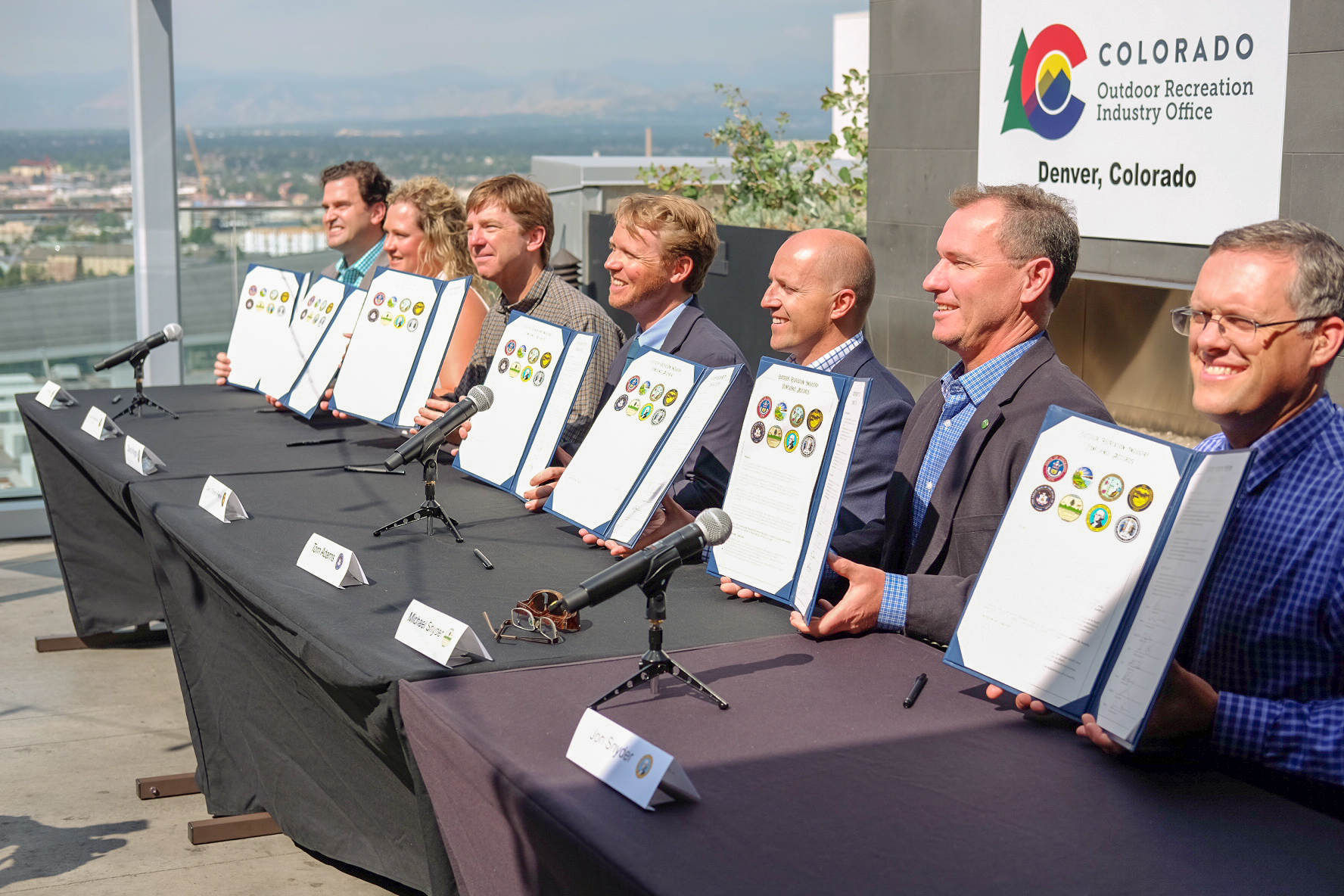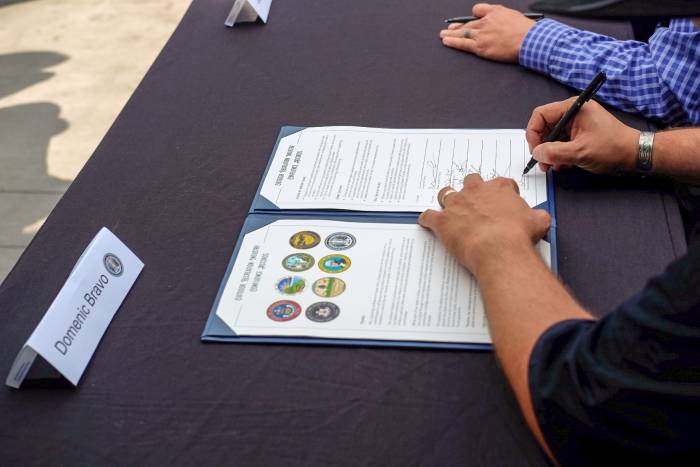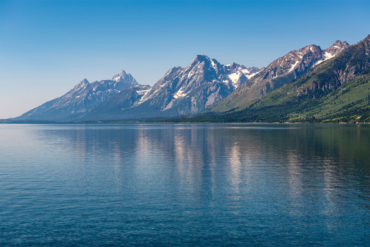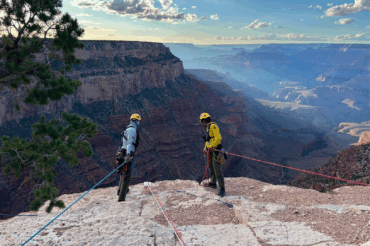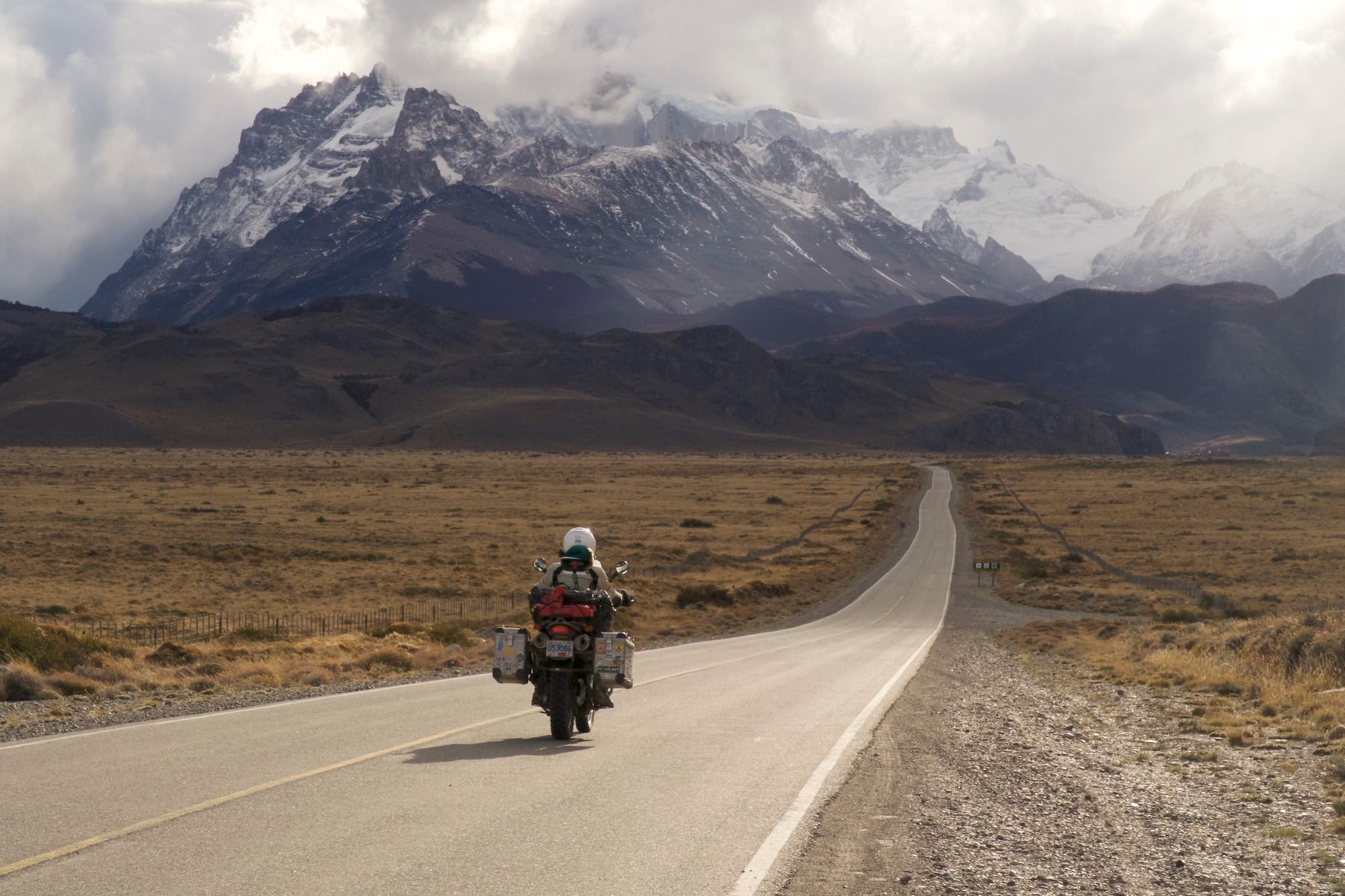Representatives called the Confluence Accords a historic first step in a push to make outdoor recreation an important political driver.

The Outdoor Retailer Summer Market drew tens of thousands to downtown Denver. People came from all over to peep the latest and greatest in outdoor gear, tech, and recreation. The event also brought together key public officials, each focused on highlighting the importance of the outdoors in state-level policymaking.
Atop a high-rise hotel in Denver Wednesday, representatives from eight states —
Colorado, Montana, North Carolina, Oregon, Utah, Vermont, Washington, and Wyoming — signed the Confluence Accords. They agreed on a “set of shared values and political principles” each will employ in future policy decisions.
“We are in a political environment in which bipartisan issues are rarer and rarer,” said Jon Snyder, a signatory of the accords and Washington state’s policy advisor for outdoor recreation and economic development. Snyder said the accords represented “a fight to keep outdoor recreation bipartisan.”
Confluence Accords at Outdoor Retailer
Originally drafted at January’s Outdoor Retailer Winter Market, the accords present a first-of-its-kind interstate alliance of state outdoor recreation offices. Specifically, the document highlights four areas in which outdoor recreation can influence public life. These are economic development, conservation and stewardship, education and workforce training, and public health and wellness.

Perhaps more importantly, Wednesday’s signing — overlooking the massive twice-annual outdoor trade show — signaled the evolution of the outdoor industry in recent years.
Luis Benitez, director of Colorado’s Outdoor Recreation Industry Office and host to the interstate delegation, said the accords would serve as a “guiding light” in protecting the infrastructure and services that contribute to America’s $887 billion outdoor recreation economy.
He also indicated the signing could expedite further support for state-level management of the outdoor recreation economy.
“These accords present a roadmap for other states on the journey to create an outdoor recreation office and one day become a future signatory,” Benitez said.
A Better Life Outdoors
The signing nodded to the growing legitimacy of the outdoor industry as both a social and political force. But the immediate impacts of the Confluence Accords remain to be seen.
Rachel VandeVoort, director of Montana’s Office of Outdoor Recreation, highlighted the potential for the accords to improve diversity in the industry.
“We all agree that diversity in the outdoors is incredibly important. This is the area where we can work together,” VandeVoort said, gesturing to the other state outdoor recreation representatives.
“We’re still not the full face and shape of this industry,” Benitez agreed. “For us up here, that’s top of mind.”
Benitez also noted the potential public health impacts of leveraging outdoor recreation for policy.
Before the event, he told KUNC, “There are states already out there with this program called ParkRx that are trying to make it prescriptive to encourage certain people with certain maladies to spend time outside and really have that be part of their wellness regimen. What we want to do is amplify that nationally to make sure that it’s a serious focus within the healthcare industry.”
The first signatories of the outdoor recreation Confluence Accords were Luis Benitez (Colo.), Rachel VandeVoort (Mont.), David Knight (N.C.), Cailin O’Brien-Feeney (Ore.), Tom Adams (Utah), Michael Snyder (Vt.), Jon Snyder (Wash.), and Domenic Bravo (Wyo.).
